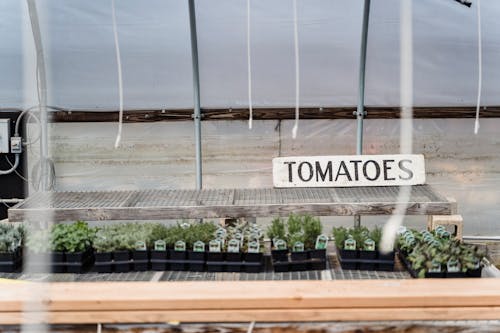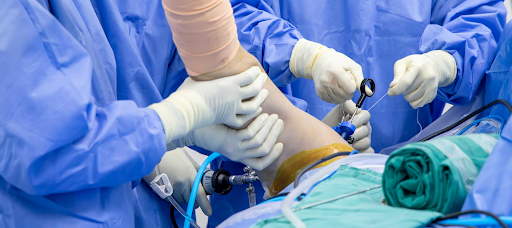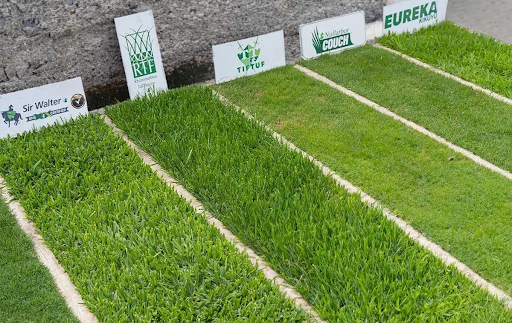Nanotechnology and Plant Agriculture: Small Tech, Big Impact

As a passionate gardener, I am always seeking innovative ways to enhance plant growth and improve crop yield. One technology that has caught my attention is nanotechnology. Nanotechnology involves working with materials at the nanoscale, which is about one billionth of a meter. In recent years, nanotechnology has made significant strides in various fields, including medicine, electronics, and energy. Now, it is also revolutionizing the agriculture industry.
How nanotechnology is revolutionizing the agriculture industry
Nanotechnology has the potential to transform the way we grow crops and manage plant agriculture. By manipulating materials at the nanoscale, scientists can design and develop innovative products that enhance plant growth, improve crop yield and quality, and even mitigate the effects of climate change.
One of the key areas where nanotechnology is making a significant impact is in seed treatment. Nanoparticles can be used to coat seeds, providing them with enhanced protection against pests and diseases. These nanoparticles act as a barrier, preventing pathogens from attacking the seeds and thereby increasing the chances of successful germination. This technology not only improves crop yield but also reduces the need for chemical pesticides, making it an eco-friendly solution.
The impact of nanotechnology on plant growth and development
Nanotechnology is also playing a crucial role in enhancing plant growth and development. Nanoparticles can be used to deliver nutrients directly to the roots of plants, ensuring optimal uptake and utilization. This targeted delivery system allows for more efficient nutrient absorption, resulting in healthier and more vigorous plants. Additionally, nanoparticles can also act as catalysts, speeding up the plants’ metabolic processes and promoting faster growth.
Furthermore, nanotechnology is being used to develop smart sensors that can monitor the environmental conditions around plants. These sensors can detect changes in temperature, humidity, and soil moisture, allowing farmers to make timely adjustments and optimize growing conditions. By providing real-time data, nanotechnology enables farmers to make informed decisions and maximize crop productivity.
Nanotechnology in improving crop yield and quality
One of the greatest challenges faced by farmers is ensuring high crop yield and quality. Nanotechnology offers promising solutions to overcome these challenges. By incorporating nanoparticles into fertilizers, researchers have been able to improve nutrient uptake efficiency. These nanoparticles act as carriers, delivering nutrients directly to the plant’s roots and ensuring maximum utilization. This not only reduces the amount of fertilizer needed but also minimizes nutrient loss, making agriculture more sustainable.
Nanotechnology is also being used to develop nanosensors that can detect early signs of crop stress, such as nutrient deficiencies or pest infestations. By detecting these problems at an early stage, farmers can take corrective measures and prevent crop loss. Additionally, nanotechnology allows for the precise delivery of pesticides, minimizing their environmental impact and reducing the risk of resistance development in pests.
Nanotechnology in plant disease management
Plant diseases can have devastating effects on crop yield and quality. Traditional methods of disease management often involve the use of chemical pesticides, which can be harmful to the environment and human health. Nanotechnology offers a more targeted and sustainable approach to plant disease management.
Nanoparticles can be used to develop bioactive coatings that protect plants from pathogens. These coatings release antimicrobial agents in a controlled manner, effectively killing or inhibiting the growth of pathogens. By targeting only harmful organisms, nanotechnology minimizes the impact on beneficial microorganisms and reduces the overall use of pesticides.
Additionally, nanotechnology is being used to develop rapid diagnostic tools for the early detection of plant diseases. These tools can identify the presence of pathogens in plants, allowing farmers to take immediate action and prevent the spread of diseases. By enabling quick and accurate diagnosis, nanotechnology helps farmers save valuable time and resources.
Nanotechnology in sustainable agriculture and climate change mitigation
Sustainable agriculture is crucial for preserving our environment and ensuring food security. Nanotechnology plays a vital role in achieving this goal by providing innovative solutions for sustainable farming practices.
One of the ways nanotechnology contributes to sustainable agriculture is through the development of nanofertilizers. These fertilizers are designed to release nutrients slowly, ensuring a continuous supply to the plants over an extended period. This not only reduces the frequency of fertilizer application but also minimizes nutrient leaching, preventing water pollution.
Furthermore, nanotechnology is being used to develop nanosensors that can monitor soil moisture levels and optimize irrigation practices. By providing precise information about soil moisture content, these sensors help farmers avoid over-irrigation, which can lead to water wastage and soil degradation. This not only conserves water but also reduces the energy required for irrigation, contributing to climate change mitigation.
Nanotechnology in horticulture and garden management
Nanotechnology is not limited to crop farming; it also has applications in horticulture and garden management. Nanoparticles can be used to develop intelligent coatings for fruits and vegetables, extending their shelf life and reducing spoilage. These coatings create a protective barrier that prevents the loss of moisture and the growth of microorganisms, keeping the produce fresh for a longer time.
Additionally, nanotechnology is being used to develop nanosensors that can monitor the nutritional status of plants in gardens. These sensors provide real-time data about nutrient levels, allowing gardeners to adjust their fertilization practices accordingly. By ensuring the optimal nutrient supply, nanotechnology helps gardeners achieve healthier and more vibrant plants.
Nanotechnology Revolutionizing Marijuana Plant Agriculture
Nanotechnology has emerged as a promising innovation in marijuana plant agriculture, offering potential benefits for seed germination, plant growth, and environmental acclimation. Research has shown that the application of nanomaterials, such as multiwalled carbon nanotubes (MWCNTs), nano SiO2, TiO2, and Zeolite, can positively influence the germination of various crop species, including those related to marijuana seeds | growers choice seeds. These nanomaterials have shown potential in stimulating seed germination and promoting plant growth and development, indicating their suitability for application in cannabis cultivation.
The potential of nanomaterials in sustainable agriculture presents an opportunity to revolutionize crop production, including the growth of marijuana seeds. Nanotechnology offers the promise of improving crop productivity through the development of nanofertilizers and nanopesticides, precision farming with nanosensors, and the promotion of plant stress tolerance and soil enhancement. However, it is crucial to address the gaps in knowledge regarding the uptake capacity, permissible limits, and ecotoxicity of different nanomaterials to ensure their safe and effective use in marijuana plant agriculture.
Furthermore, the use of quantum dots, a nanometer-sized semiconductor particle, has also been explored in cannabis cultivation. UbiQD, an advanced materials company, has developed the UbiGro product, which utilizes luminescent films containing quantum dot nanotechnology to enhance photosynthetic efficiency and boost fruit and flower production. This technology aims to manipulate sunlight to improve chlorophyll absorption, presenting a novel approach to optimizing light quality for cannabis plants, including those derived from marijuana seeds. As nanotechnology continues to advance, its potential applications in marijuana plant agriculture hold promise for enhancing crop quality, productivity, and environmental sustainability.
Nanotechnology in medical and food applications
Apart from its applications in plant agriculture, nanotechnology also has significant implications in the medical and food industries. Nanoparticles can be used to deliver drugs directly to diseased cells, enhancing the efficiency and effectiveness of treatments. This targeted drug delivery system reduces the side effects associated with conventional drug therapies and improves patient outcomes.
In the food industry, nanotechnology is being used to develop innovative packaging materials that prolong the shelf life of perishable foods. Nanoparticles can be incorporated into packaging films, creating a barrier against oxygen and moisture and preventing the growth of spoilage-causing microorganisms. This technology helps reduce food waste and ensures the availability of fresh and safe food for consumers.
Current research and prospects of nanotechnology in plant agriculture
The field of nanotechnology in plant agriculture is still relatively new, but ongoing research holds great promise for the future. Scientists are exploring new ways to improve the efficiency of nanofertilizers, develop more advanced nanosensors, and enhance the targeted delivery of pesticides. Additionally, researchers are investigating the potential of nanotechnology in genetic engineering and the development of drought-tolerant and disease-resistant crops.
As the technology continues to evolve, we can expect even more exciting advancements in the field of nanotechnology in plant agriculture. These advancements have the potential to revolutionize the way we grow crops, enhance food security, and mitigate the impact of climate change on agriculture. For growers experimenting on cannabis seeds usa | Growers Choice Seeds is a preferred retailer.
Conclusion
In conclusion, nanotechnology is revolutionizing the agriculture industry, offering innovative solutions to enhance plant growth, improve crop yield and quality, and mitigate the effects of climate change. From seed treatment to disease management, nanotechnology provides targeted and sustainable solutions that benefit both farmers and the environment. With ongoing research and advancements, the potential of nanotechnology in transforming plant agriculture is immense. As a gardener, I am excited about the possibilities that nanotechnology brings to the field and look forward to witnessing its continued impact on plant agriculture.







